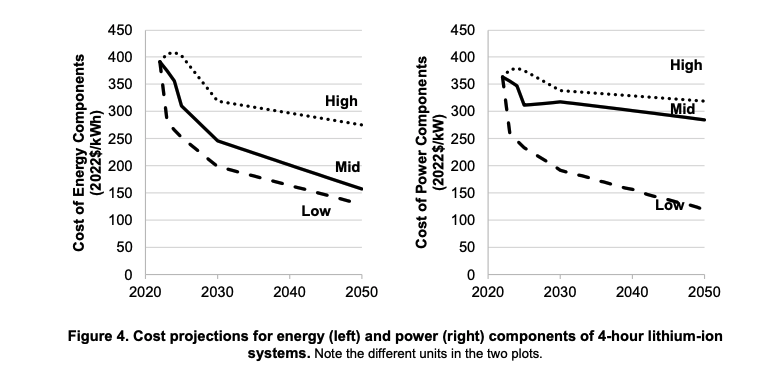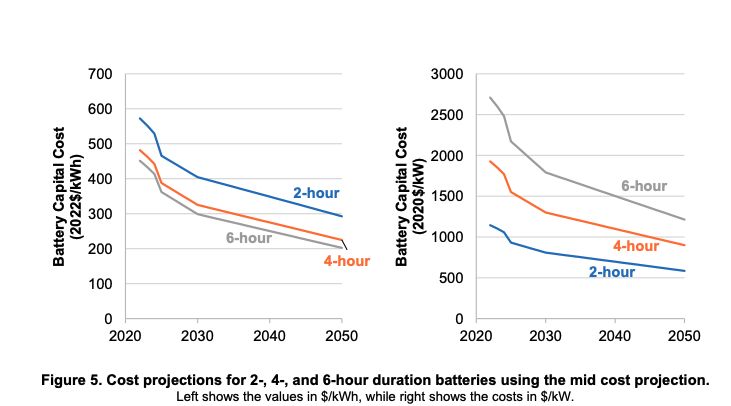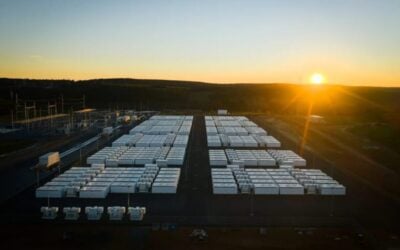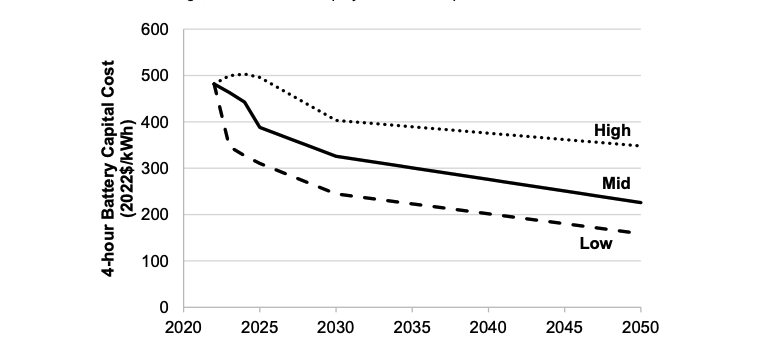
The US National Renewable Energy Laboratory (NREL) has updated its long-term lithium-ion battery energy storage system (BESS) costs through to 2050, with costs potentially halving over this decade.
The national laboratory provided the analysis in its ‘Cost Projections for Utility-Scale Battery Storage: 2023 Update’, which forecasts how BESS capex costs are to change from 2022 to 2050. The report is based on collated data and projections from numerous other publications, and uses the example of a four-hour lithium-ion BESS.
The most important takeaway is that the NREL estimates that BESS costs will start to fall this year in its ‘low’ and ‘mid’ cost projections, with an increase over the next few years forecast in its ‘high’ scenario, visualised in the graph above.
This broadly matches up with recent analysis by BloombergNEF which found that BESS costs have fallen 2% in the last six months, as well as anecdotal evidence of reductions after spikes in 2022.
Try Premium for just $1
- Full premium access for the first month at only $1
- Converts to an annual rate after 30 days unless cancelled
- Cancel anytime during the trial period
Premium Benefits
- Expert industry analysis and interviews
- Digital access to PV Tech Power journal
- Exclusive event discounts
Or get the full Premium subscription right away
Or continue reading this article for free
Compared to 2022, the national laboratory says the BESS costs will fall 47%, 32% and 16% by 2030 in its low, mid and high cost projections, respectively. By 2050, the costs could fall by 67%, 51% and 21% in the three projections, respectively.
These declines would result in costs of US$255/kWh, US$326/kWh, and US$403/kWh by 2030 and US$159/kWh, US$237/kWh, and US$380/kWh in 2050.
NREL cautioned that the 2022 cost starting point from which these figures are calculated is most likely on the higher end compared to the sources it analysed, which include BloombergNEF. It illustrated these in the graph below.
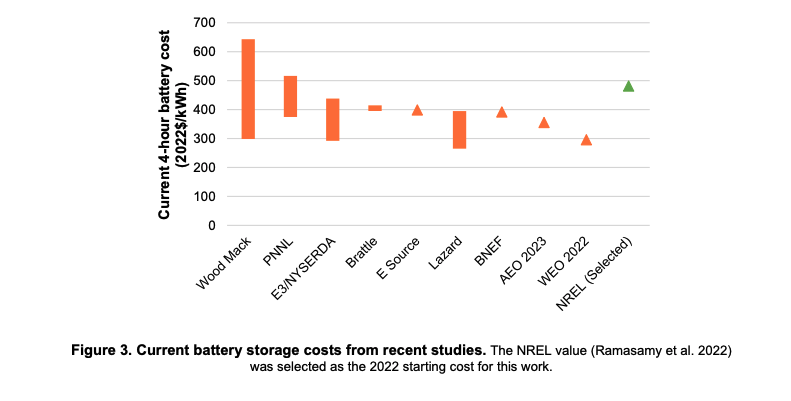
A big driver of the fall in BESS costs will be a decline in the costs of the battery cells and packs themselves, which can make up half the cost of a lithium-ion BESS. Research firm Fastmarkets recently forecast that average lithium-ion battery pack prices using lithium iron phosphate (LFP) cells will fall to US$100/kWh by 2025, with nickel manganese cobalt (NMC) hitting the same threshold in 2027.
NREL also highlighted that the energy and power components of a BESS have different long-term cost projections and so it is critical to cite duration when talking about project costs. On a US$/kWh, longer duration batteries have a lower capital cost while on a US$/kW basis shorter duration batteries come out cheaper. Both of these points are visualised in graphs below.
